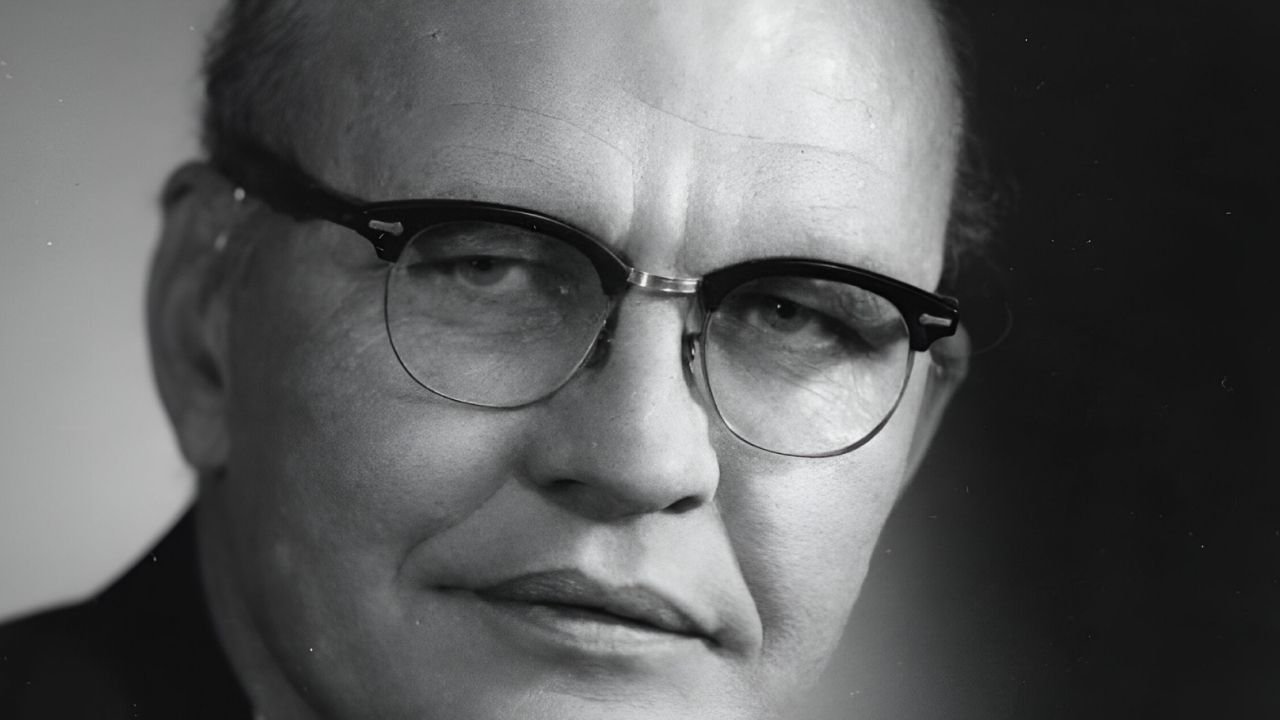
Who invented the integrated circuit? Jack Kilby is the name you need to know. Born in 1923, this American engineer changed the world with his groundbreaking invention. Integrated circuits, or microchips, are the tiny powerhouses inside almost every electronic device today. From smartphones to space shuttles, Kilby's work paved the way for modern technology. Imagine a world without computers, smartphones, or even the internet. Hard to picture, right? Kilby's innovation made all these possible. His contributions earned him the Nobel Prize in Physics in 2000. Ready to learn more about this tech pioneer? Let's dive into 20 fascinating facts about Jack Kilby.
Key Takeaways:
- Jack Kilby, a tech pioneer, invented the integrated circuit, shrinking electronic devices and paving the way for modern technology. His work earned him the Nobel Prize in Physics in 2000.
- Kilby's legacy lives on through his inventions, like the handheld calculator, and his impact on modern technology. He was a humble and private individual, but his contributions transformed the world of electronics.
Early Life and Education
Jack Kilby, a name synonymous with innovation, had a fascinating journey from his early days to becoming a tech pioneer.
- Born on November 8, 1923, in Jefferson City, Missouri, Kilby grew up during the Great Depression.
- His father, Hubert Kilby, was an executive at a utility company, which sparked Jack's interest in electronics.
- Kilby attended the University of Illinois at Urbana-Champaign, where he earned a degree in electrical engineering in 1947.
- After college, he pursued a master's degree at the University of Wisconsin-Madison while working at Centralab, a division of Globe-Union Corporation.
Career Beginnings
Kilby's career took off as he joined Texas Instruments, where he made groundbreaking contributions.
- In 1958, Kilby joined Texas Instruments, a company that would become his professional home for many years.
- During his first summer at Texas Instruments, Kilby invented the integrated circuit, a revolutionary development in electronics.
- His invention was partly driven by the company's "summer shutdown," which left him with time to think creatively.
- Kilby's integrated circuit was first demonstrated on September 12, 1958, marking a pivotal moment in technology history.
The Integrated Circuit
The integrated circuit, or microchip, is one of Kilby's most significant contributions to modern technology.
- Kilby's integrated circuit combined multiple electronic components on a single piece of semiconductor material.
- This invention drastically reduced the size and cost of electronic devices, paving the way for modern computers and smartphones.
- Kilby's work on the integrated circuit earned him the prestigious Nobel Prize in Physics in 2000.
- The first practical application of Kilby's integrated circuit was in a hearing aid, showcasing its potential to transform various industries.
Later Achievements
Kilby's career didn't stop with the integrated circuit; he continued to innovate and contribute to technology.
- Kilby also played a crucial role in developing the handheld calculator, another groundbreaking invention.
- In 1967, Texas Instruments introduced the first handheld calculator, the "Cal-Tech," based on Kilby's designs.
- Kilby held over 60 patents by the end of his career, reflecting his prolific contributions to electronics.
- He was inducted into the National Inventors Hall of Fame in 1982, recognizing his lasting impact on technology.
Personal Life and Legacy
Beyond his professional achievements, Kilby's personal life and legacy are equally noteworthy.
- Kilby married Barbara Annegers in 1947, and they had two daughters, Ann and Janet.
- Despite his monumental achievements, Kilby remained a humble and private individual throughout his life.
- Kilby passed away on June 20, 2005, but his legacy lives on through the countless devices that rely on his inventions.
- Today, Kilby is remembered as a pioneer who transformed the world of electronics, making modern technology possible.
Kilby's Legacy Lives On
Jack Kilby’s contributions to technology changed the world. His invention of the integrated circuit paved the way for modern electronics, from smartphones to computers. Kilby’s work at Texas Instruments earned him a Nobel Prize in Physics, cementing his place in history. Beyond the integrated circuit, he also developed the first handheld calculator and thermal printer. His innovations continue to impact our daily lives, making technology more accessible and efficient. Kilby’s legacy is a testament to the power of innovation and perseverance. His story inspires future generations of engineers and inventors to push boundaries and think outside the box. As we use our gadgets and devices, let’s remember the genius who made it all possible. Jack Kilby’s work reminds us that one idea can indeed change the world.
Frequently Asked Questions
Was this page helpful?
Our commitment to delivering trustworthy and engaging content is at the heart of what we do. Each fact on our site is contributed by real users like you, bringing a wealth of diverse insights and information. To ensure the highest standards of accuracy and reliability, our dedicated editors meticulously review each submission. This process guarantees that the facts we share are not only fascinating but also credible. Trust in our commitment to quality and authenticity as you explore and learn with us.
